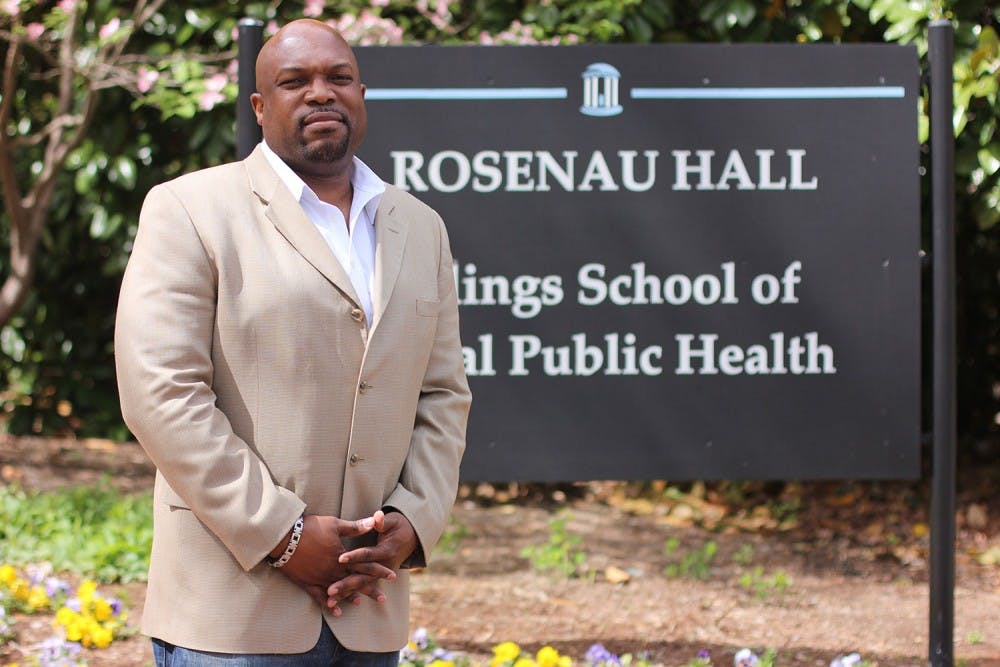“The department defines the way that they are diverse,” he said. “I don’t keep track of that. They are diverse, and there are many ways (they) can be diverse.”
Recruiting for diversity
There have been 148 faculty members hired through the program since 2000, and there are currently 49 targeted hires on campus — 26 of whom are in the College of Arts and Sciences.
Strauss said that he hopes this program will soon no longer be necessary.
“This mechanism for diversifying faculty is a good tool, but in the long term our regular hiring process should suffice,” he said. “Once the percentage of hiring matches the percentage of minorities in North Carolina the program may no longer need to be in place.”
The Office of the Provost pays the salary for the first four years of targeted hires. Strauss said it is a substantial investment in diversifying the University — roughly $4.6 million across the University for the academic year 2016-2017.
Rudy Jones, associate director of the Equal Opportunity and Compliance Office, said the search committees in the recruitment process have to be a minimum of three people and are required to have women and racial minority representation.
The EOC helps departments be more diverse in their hires by providing guidelines and training to help their recruitment efforts.
Open positions at the University are also posted in journals targeted toward underrepresented groups. For fixed-term positions the ad has to be in place for at least 14 days, based on EOC guidelines. For tenure-track positions it has to be posted for at least 30 days.
“If a department is underrepresented in one area and does not hire a person in that identity, they must explain in a summary profile how many underrepresented people were in their pool of candidates, how many they interviewed and so on,” Jones said.
Jones said the overall objective is to hire the best, and to do that we have to look at the pool of candidates. In the future better networking and ad placements will help to increase the diversity of that pool.
Resources for retention
To get the day's news and headlines in your inbox each morning, sign up for our email newsletters.
The Carolina Black Caucus has been a part of this campus for more than 40 years, yet many people still have not heard about it, McGhee said.
It is a meeting place for black faculty and staff to discuss ways to diversify the staff, create an inclusive environment and celebrate black achievements and history.
Carolina Black Caucus reaches across to other faculty groups and student organizations to celebrate the achievements of black faculty and students, McGhee said.
The Caucus also represents staff at UNC, which is largely minority.
“People forget we have a large minority staff, and they have problems just like anyone else,” McGhee said.
Kia Caldwell, director of faculty diversity initiatives, said getting information out there is an important part of the process.
“We already have some really good programs, but people don’t know how they work,” she said.
Caldwell said the University has classes that have formed from discussions about diversity as well as diversity workshops where they talk about topics including power inequality.
“It’s not only recruitment, but retention is another issue,” she said. “We still have more to do, and I would like to do more with underrepresented faculty of color.”
Part of the work of the diversity liaison, Caldwell said, is to broaden the conversation about diversity and improve communication between departments and administration.
‘Teachers that look like them’
Andrea Benjamin, assistant professor in the political science department, has been teaching a class called Race and Politics in the Contemporary United States since 2011. She also teaches a first-year seminar called Politics of Race, Ethnicity, Language, Religion and Gender.
Benjamin said if students feel comfortable with their professors they are more likely to engage in class and go to office hours.
She said she often hears from her students that she is their first black woman professor, and she takes that very seriously.
“I think it’s important for students to have teachers that look like them,” she said.
Benjamin said faculty diversity is important, not only with the diverse identities we can see, but also with socioeconomic status and LGBTQ identifying people.
Benjamin said these perspectives can add to the way someone views the class and broaden the sense of diversity.
“These are little ways we can be more relatable to our students,” she said.
@SUGARcain_
enterprise@dailytarheel.com



